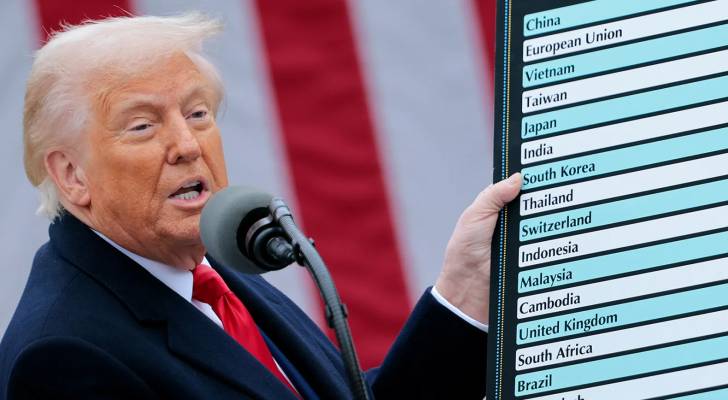Donald Trump (Credit: Getty Images)
US appeals court rules most of Trump's tariffs illegal
A divided federal appeals court ruled on Friday that US President Donald Trump exceeded his authority in imposing several key tariffs, a decision that threatens one of the central tools of his trade and economic policy.
The US Court of Appeals for the Federal Circuit in Washington, D.C., voted 7–4 against Trump’s use of the International Emergency Economic Powers Act (IEEPA) to justify the levies, saying the 1977 law does not grant presidents unlimited power to impose tariffs.
"The statute bestows significant authority on the President to undertake a number of actions in response to a declared national emergency, but none of these actions explicitly include the power to impose tariffs, duties, or the like, or the power to tax," the court wrote in its opinion.
The ruling, however, allows the tariffs to remain in effect until October 14 while the Trump administration prepares an appeal to the US Supreme Court.
Trump criticized the decision, calling the panel "highly partisan" in a post on Truth Social. "If these Tariffs ever went away, it would be a total disaster for the Country," he wrote, while expressing confidence the high court will overturn the ruling.
The case centered on two sets of tariffs Trump imposed, in April as part of what he termed "reciprocal" tariffs, and in February against China, Canada, and Mexico. He defended the measures as necessary to address trade imbalances and to combat the cross-border flow of fentanyl, though the targeted countries have denied those claims.
The court emphasized that IEEPA, historically used to sanction foreign adversaries or freeze assets, does not authorize tariff authority. Trump was the first president to invoke the law for that purpose.
Critics argued that the Constitution grants Congress, not the president, the authority to impose tariffs or taxes, and any delegation of such powers must be explicit. The lawsuits were brought by small US businesses and Democratic-led states who argued Trump had overstepped.
While Friday’s decision narrows Trump’s trade powers, it does not affect tariffs imposed under other laws, such as his widely contested duties on steel and aluminum.
Markets showed little immediate reaction to the ruling, but analysts warned of renewed uncertainty. "The last thing the market or corporate America needs is more uncertainty on trade," said Art Hogan, chief market strategist at B. Riley Wealth.
William Reinsch, a former senior Commerce Department official now at the Center for Strategic and International Studies, said Trump’s team had anticipated the outcome. "It's common knowledge the administration has been anticipating this outcome and is preparing a Plan B, presumably to keep the tariffs in place via other statutes," he said.
The dispute adds to a series of high-stakes legal battles over Trump’s second-term economic agenda, including efforts to limit the independence of the Federal Reserve.
"I think it puts Trump's entire economic agenda on a potential collision course with the Supreme Court. It's unlike anything we've seen ever," said Josh Lipsky of the Atlantic Council.
The Supreme Court, which holds a 6–3 conservative majority, has backed Trump on several policy fronts but has also signaled resistance to broad expansions of presidential power under old laws.




